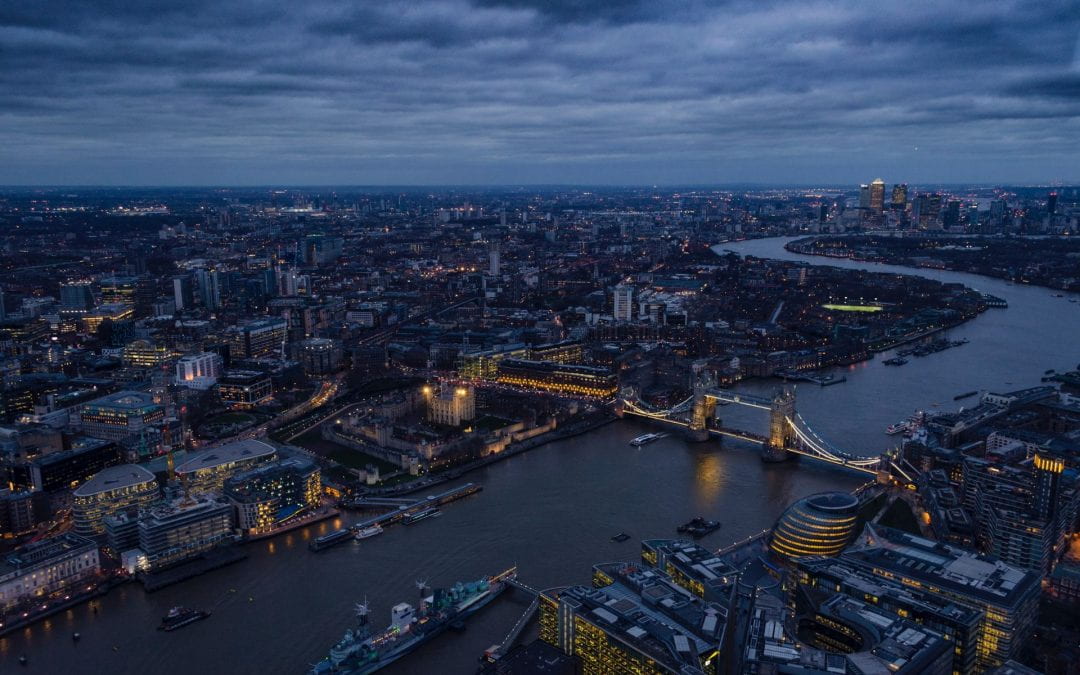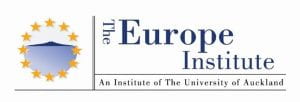By Geoff Kemp
“I saw my father alive, dead, and buried, the threefold process that’s at once so ordinary and so extraordinary, and tragically has become more ordinary in the UK in these extraordinary times.”
I made three journeys to Britain and back as COVID-19 made its own way across the world. I saw my father alive, dead, and buried, the threefold process that’s at once so ordinary and so extraordinary, and tragically has become more ordinary in the UK in these extraordinary times.
Dad was not a victim of COVID-19: he died in a nursing home on Friday 21 February, essentially of old age, one of 10,841 deaths registered in England and Wales that week, a figure below the five-year average. A month later, as I returned to Auckland after his funeral, deaths in the UK exceeded the average and by mid-April had more than doubled, to more than 22,000 deaths a week. Like Dad, not everyone died coronavirus deaths but excess mortality is probably the best indicator of the real toll, and between the week of the funeral on 16 March and 26 May – his eighty-fifth birthday, coincidentally – the number of excess deaths in England and Wales was 53,846. The government’s preferred statistic of lab-tested COVID-19 deaths stood on 26 May at 37,048 across the UK (including Scotland and Northern Ireland) with daily deaths since then still in the hundreds.
On either statistical base, Britain’s death toll is more than a thousand times that of New Zealand, a hundred times greater per head of population. It is blindingly clear that something went terribly wrong in the UK but I have no particularly incisive political analysis to offer, only a recollection of shared stumbling through what now seems a fog of societal and governmental denial or delusion, merging with familial mists of mourning.
The signs were there when I visited at the end of January to help Mum with Dad’s transfer to the nursing home from Nottingham’s Queen’s Medical Centre, one of Britain’s biggest hospitals, where deaths from COVID-19 now exceed 200. Coronavirus was in the air, if mainly figuratively at that stage, and Britons seemed somehow both carelessly complacent – it was a far-off Chinese problem – and immoderately worried, panic-buying surgical masks from pharmacies nationwide. They were looking for leadership, clearly, but that was in short supply too. I joined the mask seekers, having a return ticket to Auckland through Hong Kong, asking hopefully at the QMC pharmacy but finding nothing to be had. A dust mask from a local DIY store substituted, though was only donned in the queue to be temperature tested at Hong Kong airport, where the unmasked minority were visibly white westerners, probably carrying panic-buy masks they were too self-conscious to wear, like me.
A fortnight later, the day after Dad’s death, me and the mask headed back to Heathrow in a hastily-purchased Malaysia Airlines seat. I was distinctly conscious now that I was flying across a world of creeping coronaviral crisis and, I wince to recall, even pondered an essay on the subject of ‘what do we owe the living and what do we owe the dead?’ I wondered if I was endangering myself and others to repay what I owed to the man lying non-judgementally in the Co-op funeral parlour, and to his waiting widow. I didn’t get far with the portentous question because I’m not a philosopher, lacked key facts, and had already made the question idle by reaching Kuala Lumpur with my growing carbon footprint. Like most people I was doing what I thought was right while ready to defer to those in a better position to judge the evidence, weigh the arguments and issue authoritative guidance, ultimately governments. No-one told me no, so I went.
In Nottingham, I saw my father for the last time. Funeral arrangements were unaffected by the developing COVID-19 situation, the delaying factor being Dad’s wish to be buried closer to his roots in Bootle, Liverpool. The first available date was 16 March, two weeks off, so I had to head home, via Dubai, arriving in Auckland in week one of the semester. As I travelled, Britain had its first death from COVID-19, followed quickly by the first death at QMC. But little seemed to change in response. The UK’s lockdown was still nearly three weeks away. The government talked of not acting precipitously and overwhelming the NHS. The new Prime Minister, still pumped full of Brexit brio, toured hospitals and pumped everyone’s hand.
I was by now fearful of coronavirus, though more fearful of being prevented from attending Dad’s funeral, but leave was booked and colleagues supportive, and no-one in authority told me not to go, or not to arrive, so I went. As I left Auckland, the New Zealand government ordered 14-day self-isolation for air travellers, the Vice-Chancellor circulated an email halting all staff travel, and another message requested the return of staff overseas on personal travel. There was no turning back, even if I wanted to. On landing I was joined by my wife and eldest daughter, arriving together at Heathrow, and another daughter, flying in from Barcelona, and we gathered with wider family, sharing experiences: the empty Air New Zealand plane, Spain’s ‘State of Alarm’, a hospital without PPE, lockdown (briefly) at the nursing home where Dad died.
On the Monday we drove north for the funeral, met by a surprising number of relatives and friends, though many of similar age to Dad stayed away, understandably. On an unseasonably sunny day on the outskirts of Liverpool, a short distance from where I was born, Dad was laid to rest. Afterwards we adjourned to a pub, just a normal funeral, if unfathomably carefree, not careworn when viewed with hindsight. Perhaps a paradox of the pandemic will be that it affected everyone, yet to the end was unseen and indistinct to most. Blessedly, the occasion marks only one death, that of Reg Kemp. Invisibly to mourners, he wore a Union Jack jacket my Mum made to mark the Queen’s diamond jubilee in 2012. Once a councillor, he was the kind of Tory Brexit supporter you could love.
The next task was to get back to Auckland, with airlines cancelling flights and the U.S. blocking transit. It later turned out that on my flight I was seated with someone who developed COVID-19. By the time I was notified by Healthline I was at the end of my 14-day self-isolation and symptom-free, so no further action was taken. I landed on 21 March, the day New Zealand’s lockdown started at level 2, and was joined in self-isolation within days by the rest of the country at level 4. My wife and daughter’s Air New Zealand flight was some days away and unlikely to happen, so one caught a Thai airways flight while the other hung on in hope, then paid dearly for a ticket with Emirates. The other daughter managed to re-enter Spain, her travel authority a photo of her, bikini-clad on a beach holding out to the camera a Barcelona residency permit. Britain was united with its European neighbours in COVID chaos, in part because of having assumed it was a country apart.
It could have been different. New Zealand’s first coronavirus case was on 28 February and its first death on 29 March – a week after lockdown. Britain’s first coronavirus case was at the end of January, during my first trip, and its first deaths were in early March, at the end of my second visit, but the country only locked down four days after I left for the third time, when deaths were already in the hundreds. Recklessness in the face of coronavirus extends beyond the political class, I’m well aware, but it’s hard not to doubt a leadership which pretended Britain could be immune and now seems to consider its own members immune from lockdown norms belatedly set for everyone else. Dad’s suspicion of the elite extended to Boris Johnson and he would have shared in the outrage at Dominic Cummings’s rule-breaking. He’d be angrily prodding a finger at the coronavirus statistics, whose anonymity cannot disguise that each number represents a family death, most often an elderly parent or grandparent, with accompanying grief I can begin to understand.
For more information on COVID-19, head to the Ministry of Health website.
Geoff Kemp is a Senior Lecturer in Politics in the School of Social Sciences, University of Auckland. He has been a visiting associate professor at Nottingham University, a partner of the University of Auckland in Universitas 21. The Queen’s Medical Centre is part of Nottingham University Hospitals NHS Trust.
This article is published as part of a series commissioned by the Europe Institute at the University of Auckland.
For more on the Europe Institute click here.
Disclaimer: The ideas expressed in this article reflect the author’s views and not necessarily the views of The Big Q.
You might also like:
How do we ride the emotional rollercoaster of difficult times? 🔊
What is the role of psychological first aid in times of crisis? 🔊


